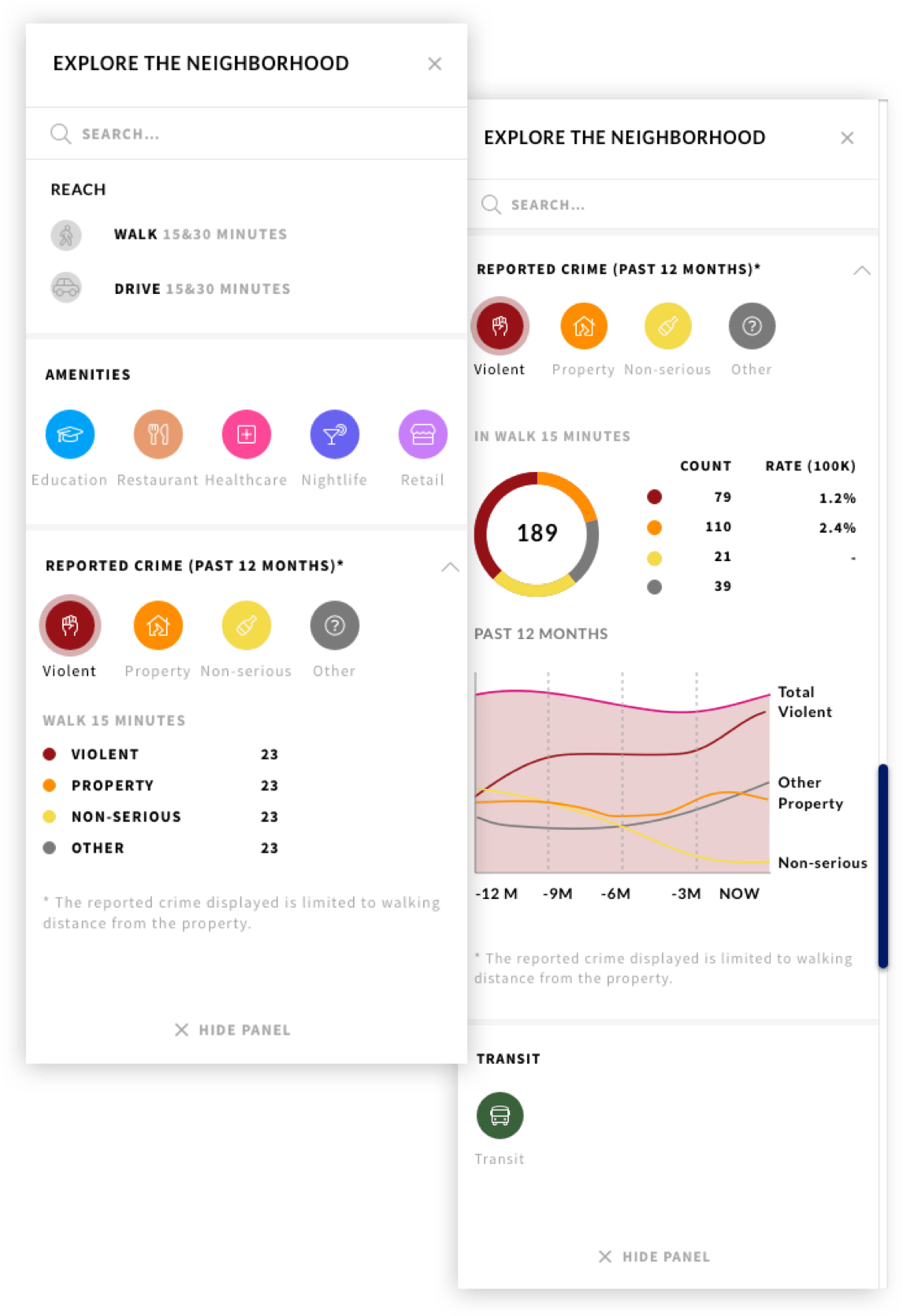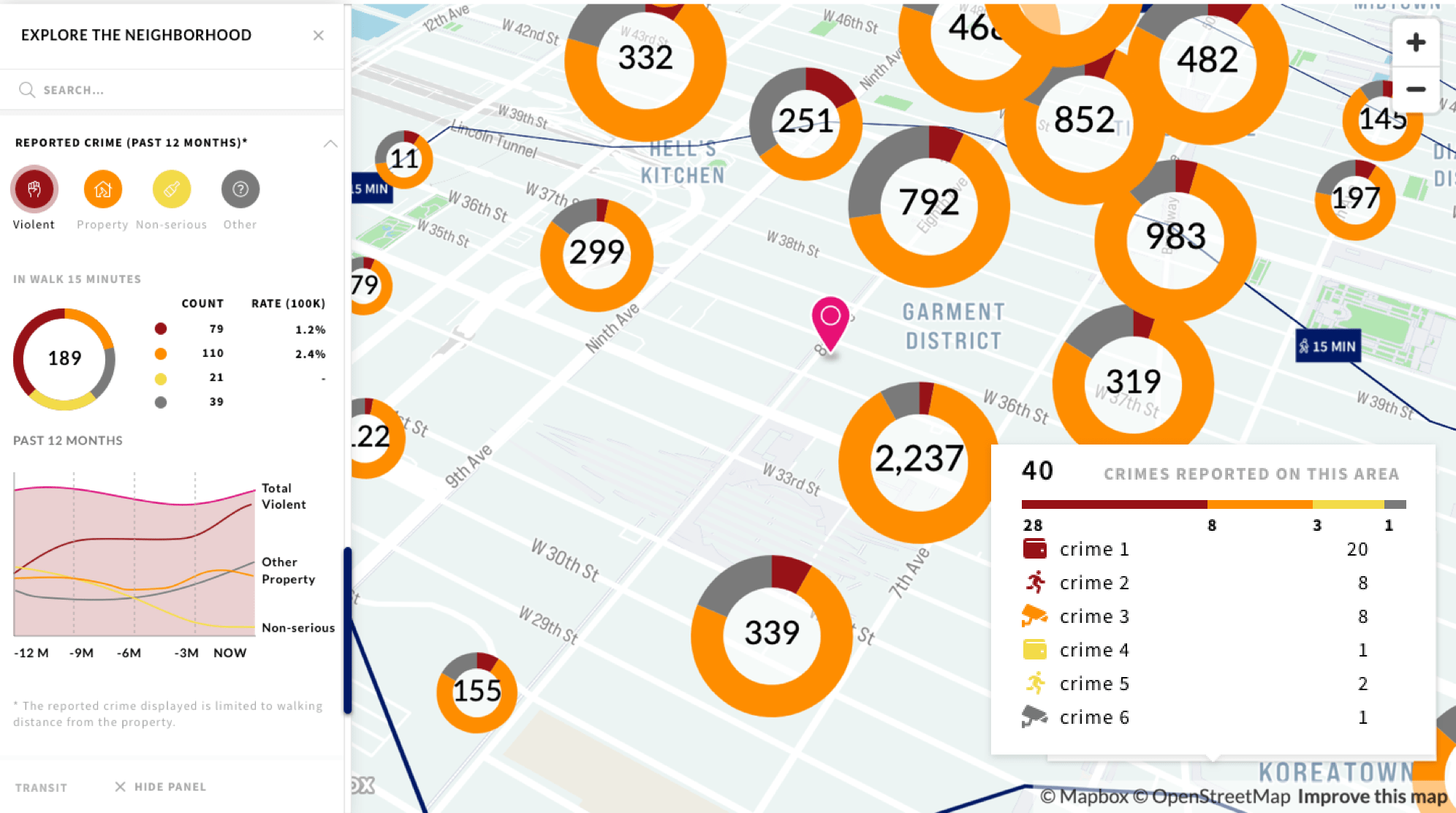Research
What issue this project was trying to solve
Assessing crime reports is an essential step for screening deputies and appraisers. The existing offerings are often too simple or too complex to comprehend. With this project the goal is to offer our users an interactive report with layered data granularity on demand.


